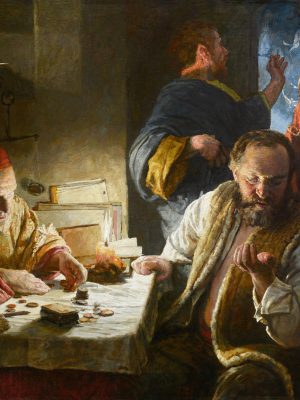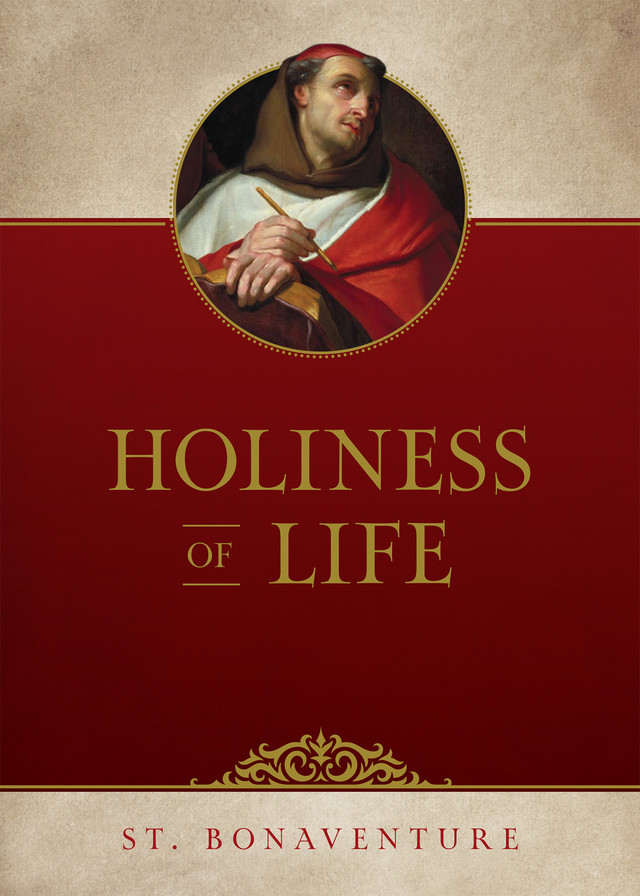If we wish to become perfect, we must first begin with ourselves. Often we are blinded through false humility and fail to attain true self-knowledge. Here, Saint Bonaventure addresses this common struggle and reveals how the soul can attain this hidden treasure of priceless worth.
We Must Begin With Ourselves
The spouse of Christ who longs to become perfect must begin with her own self. She must put aside and forget everything else, entering into the secrecy of her own heart. When she has done this, let her sift thoroughly all her weaknesses, habits, affections, actions and sins. She must weigh everything carefully, and make a complete examination of past and present. Should she discover even the least imperfection, let her weep in the bitterness of her heart.
The 3 Root Causes of Sin
Negligence, passion, and malice are the three root causes of sin (Cf. Bonaventure’s Threefold Way.) When we realize, dear Mother, that our sins and imperfections originate from one or other of these three causes, we enter on the way to an exact understanding of ourselves; but unless in our recollection of past offences we put our finger on the precise cause of each sin, we shall never reach the goal of perfect self-knowledge.
Perfect self-knowledge, I feel sure, is the object you propose to yourself. You wish, helped by such knowledge, to bewail your past transgressions. Since this is so you cannot do better than to proceed as follows.
Make A Thorough Examination of Your Soul
First, discover by reflection whether you are occasionally or habitually negligent. Recollect whether the control of your heart is slipshod and haphazard. Are you careless in the use of your time? Is the intention you propose to your self habitually imperfect? Examine yourself diligently on these three points, because it is of the utmost importance that you govern your affections, that you spend your time profitably and that always and in every action you have a good and becoming object or end in view.
Recollect how negligent you have been in the discharge of your duties: prayer, reading, and the like. Remember that the performance of these tasks and the cultivation of these practices demand your best energies if you are to produce and bring forth worthy fruit in due season. (Cf. Ps. i, 3.) It is of little avail to excel in one practice if you fail in the others.
Go on with the examination, recalling to mind your neglect of penitential exercises, your negligent attitude towards temptation and sin, as well as your general disregard for the means of perfection. To reach the Promised Land you must weep with grief at the thought of the sins you have committed. Further, you must resist temptations to evil, and you must “advance from virtue to virtue.” (Ps. lxxxiii, 8.) Take to heart these principles, and you will be able to form a true estimate of your negligence.
What Do Your Interior Promptings Tend Toward?
Should you wish to pursue the subject and know yourself still better, take another look at yourself and ask whether your interior promptings tend towards pleasure, curiosity or vanity.
There is an evident weakness for pleasures of sense when a religious looks eagerly for what is sweet, for instance, delicious dishes. A similar weakness prevails when she is anxious for what is soft and comforting: fine clothing, for example, or things gratifying to or soothing to the flesh, as, for example, luxuries. You may know for a certainty that the handmaid of the Lord is a victim of inquisitiveness when she longs to fathom secrets, to gaze on pleasurable and beautiful objects, and to possess unusual and precious things. To seek the esteem and the good opinion of others, to look for the praise of men and to be anxious for the honors in their gifts: the presence of any or all of these tendencies in a spouse of Christ shows a vain mind. O handmaid of Christ, shun these proclivities as poison, for they are the springs or founts of evil!
Do You Nourish Malice, Anger, or Sloth?
You will complete the examination and understand yourself thoroughly if you discover whether you nourish or have nourished within your breast the malice of anger, envy, or sloth. Please pay attention to what I have to say.
Anger or irascibility is surely nourished in the heart when the thoughts, whisperings, spoken words, emotions, gestures or features of a religious are tinged with even the slightest coloring of animosity or indignation against another. Envy holds sway in a man when he feels joyful at another’s misfortune or is sad when better things come his neighbor’s way. The envious man rejoices at another s troubles and is cast down when all goes well with him. Sloth cannot be mistaken. It is sloth that inclines the religious to lukewarmness, drowsiness, unpunctuality, laziness, negligence, remissness, dissoluteness, lack of devotion, sadness, or weariness. The spouse of God must have a holy horror of these things and avoid them as deadly poison. In them lurks the ruin of both soul and body.
The Hidden Treasure of Priceless Worth
O handmaid, beloved of God, if perfect self- knowledge is your aim, reflect! “Enter into your heart and learn to value yourself at your proper worth. Discuss with yourself what you are, what you were, what you ought to be, and what you can be. Note what you were originally, what you are now through your own fault, what on the contrary good efforts ought to have made you, and what you still may be by correspondence with grace.” (St. Bernard, The Inter. Dwelling xxxvi)
Without doubt, if you keep up this exercise you will find the hidden treasure of priceless worth. (Cf. St. Matt, xiii, 44) A golden increase will come to you. More and more will your knowledge be widened and your wisdom strengthened. Be faithful to this exercise and the eye of your heart will be cleansed, the acumen of your mind developed, and your intelligence enlarged. If you do not know your own dignity and condition, you cannot value anything at its proper worth. One must first take thought upon one’s own soul if the angelic and divine natures are to be correctly estimated and esteemed. If you are not able to reflect upon yourself, how will you be fitted to investigate the things above you? “If you are not yet worthy to enter the first tabernacle, how will you have the effrontery to enter the Holy of Holies?” (Richard of St. Victor)
A man whose mind is distraught in its anxieties for others has no memory for himself. His imagination is so clouded with pictures of other persons and things that he cannot form an idea of his own state. The allurements of unlawful passions so fascinate him that he never gets back to himself with a longing for interior sweetness and spiritual joy. Things of sense so possess his whole being that he can no longer enter into himself as the image of God. Thus entirely wretched, not knowing himself, he knows nothing (Cf. S. Aug., de Ordine I, 3.)
Put everything else aside and learn well and bear in mind what you are. For such self-knowledge St. Bernard prayed: “God, grant that I may know nothing if I do not know my own self.” (S. Bernard, Serm. de Diversis, I)
ooo
This article is taken from a chapter in Holiness of Life by Saint Bonaventure which is available from TAN Books.









